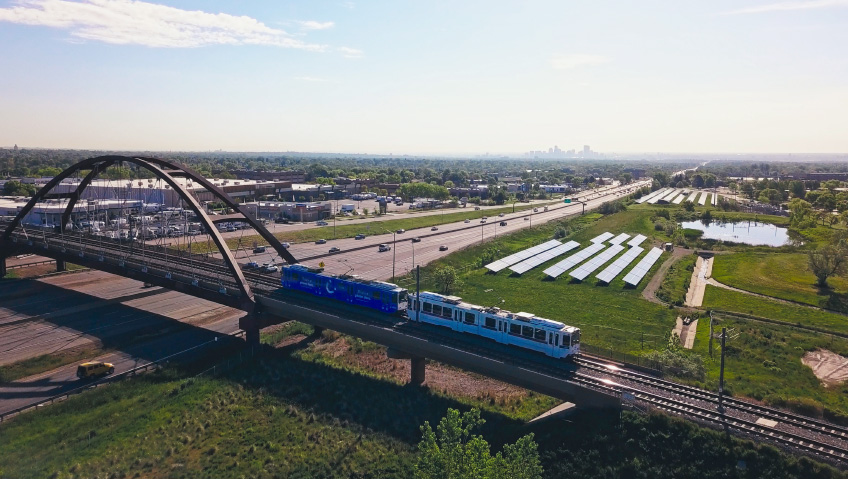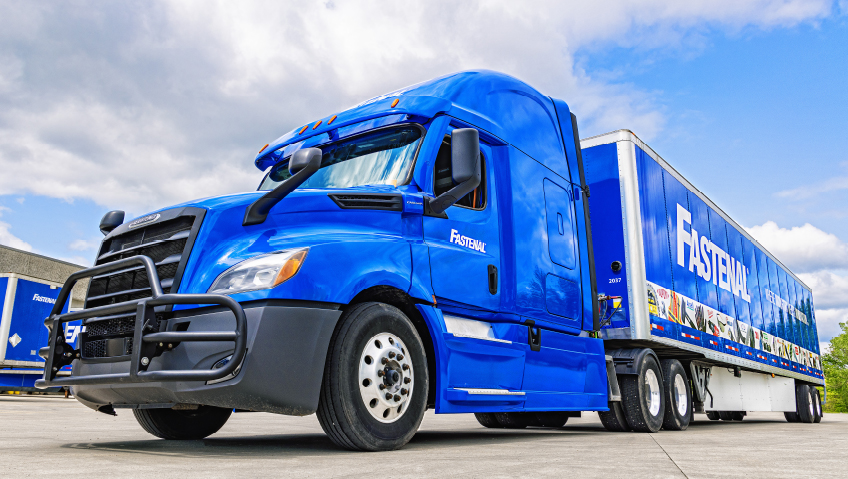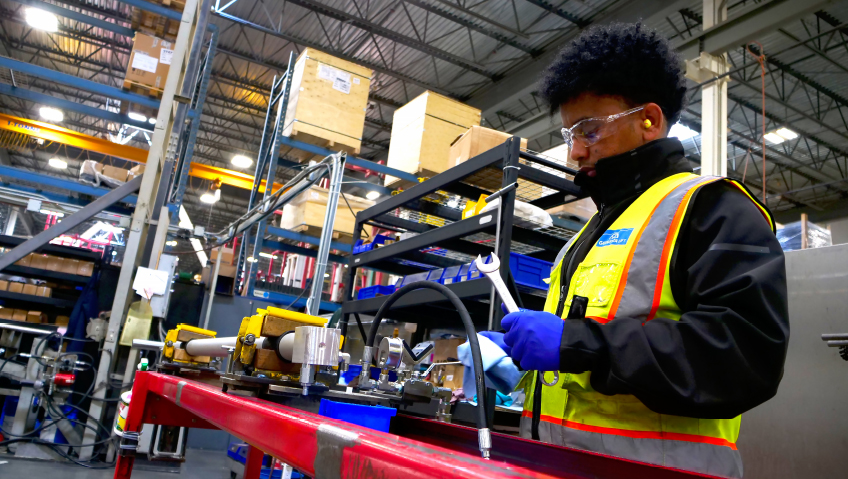It seems businesses around the world take inspiration from the song ‘Georgia on My Mind,’ made famous by Ray Charles. An increasing number of companies are drawn to the southern state, eager to take advantage of all that Georgia has to offer.
In fact, Georgia is the number one state for business, according to Area Development magazine—and has been for the last 11 years. What is the secret behind Georgia’s success? The adage, ‘location, location, location,’ for starters. 80 percent of the nation’s population live within a two-day truck drive or a two-hour flight of Georgia, and the state’s world-class infrastructure is ideal for moving goods.
The deepwater Port of Savannah is the third busiest and fastest-growing container gateway in the nation, and boasts the biggest single container terminal in all of North America, according to georgia.org. The Port also maintains a greater refrigerated container capacity than any other port terminal on the East Coast or the Gulf Coast. As a result, 40 percent of the United States’ containerized poultry exports pass through the Port of Savannah.
The deepwater Port of Brunswick, meanwhile, is the U.S.’s number one terminal for new automobile imports. Its Colonels Island Terminal is the nation’s second busiest port for total Roll-on/Roll-off cargo. Already home to three berths able to accommodate more than 900,000 vehicles each year, the Georgia Port Authority has committed $150 million to building a fourth berth at the terminal, as well as 85 additional acres for auto processing and 360,000 square feet of new warehouse space.
Once goods exit the ports, they are easily whisked away via I-95, I-16, or two Class 1 railroads. Appalachian Regional Port connects the port of Savannah to companies in northwest Georgia, Alabama, Tennessee, and Kentucky through a direct, 388-mile CSX rail service route. Currently under construction, Northeast Georgia Inland Port will create a direct link to the Port of Savannah via the Norfolk Southern railroad in the near future, making it even more efficient to move goods.
Hartsfield-Jackson Atlanta International Airport (ATL), the busiest passenger airport in the world, offers direct access to domestic and international markets, with nonstop flights to 150 cities in the United States and direct flights to 70 cities in 50 different countries. On average, the airport sees a whopping 2,700 arrivals each day and over 100 million passengers departing each year. More than 725,000 metric tons of cargo are moved through ATL’s 1.5 million square feet of cargo warehouse space every year, and eight other commercial airports and over 100 public-use airports provide even more options for efficient air travel to and from the state.
Georgia’s networks go beyond transportation to include the fastest information networks in the world. In fact, Georgia was the first state in the union to precisely map the availability of broadband services, accurately identifying which areas required accessibility. Now, 85 percent of Georgia households have access to broadband internet, thanks to the public-private collaboration Georgia Broadband Deployment Initiative. In 2021, U.S. News & World Report ranked the state #5 for internet access. Two of the biggest fiber optic trunk lines in the U.S. intersect in Atlanta, in addition to two major research lines.
The state has worked hard to cultivate a pro-business environment, another key factor in its success. At just 5.19 percent, corporate tax rates are low while fiscal responsibility is high. State law requires a balanced budget, and Georgia boasts one of the lowest debt-per-capita levels in the U.S. For the last 21 years, the state has maintained the highest bond ratings from each of the Big Three credit rating agencies: Standard & Poor’s, Moody’s, and Fitch.
As the saying goes, the proof is in the pudding, and businesses have demonstrated that proof by flocking to the state in recent years. 440 Fortune 500 companies operate within Georgia, and 18 are headquartered there. Major industries including aerospace, agribusiness, automotive, defense, electric vehicle manufacturing, energy, film & entertainment, food processing, life sciences, logistics & supply chain, manufacturing, technology, and tourism are all thriving within the state.
Agribusiness is the state’s leading industry, with an economic impact of over $74 billion annually. Georgia is number one in the nation for peanuts, broilers, and hatching eggs. There are 9.9 million acres of operating farmlands and 399,200 jobs in food, fiber production, and related industries throughout the state.
With such an active agricultural sector to draw from, food processing has become another big industry within the state. Georgia is home to 1,586 food processing facilities and nearly half of the leading 100 U.S. food processing companies operate there. The state has 178 million cubic feet of cold storage space, and four of the five top global public refrigerated warehousing companies boast locations within the state.
The automotive industry also has a big presence in Georgia. The state first became an automotive manufacturing center back in 1909, when the first car was assembled there, and over the last century, leading automotive companies have continued to enjoy an ongoing presence in the state. Now, Georgia is also welcoming electric vehicle manufacturers in addition to existing automotive companies. Major players within this thriving automative ecosystem include original equipment manufacturers Kia, Hyundai Motor Group, Metaplant America, and Rivian, as well as battery manufacturers including LG Energy Solution and SK Battery America.
Georgia continues to evolve with the times, attracting new, leading-edge industries. Aerospace is the state’s second largest manufacturing industry, with over 800 aerospace companies creating an economic impact of $57.5 billion. The state’s number one export is aerospace products—$12.6 billion last year alone, and its aerospace connection goes all the way back to the 1960s, when Camden County was one of the finalists for NASA’s launch site. While it didn’t make the final cut, NASA did go on to test rockets there and the state developed a leading satellite communications technologies industry.
Today, Georgia’s aerospace industry boasts a wide range of players, from research & development, original equipment manufacturers, and hypersonics to unmanned arial vehicles, transportation services, and cybersecurity operations. Over 40 aerospace-related facilities have moved to Georgia or expanded their operations there over the last decade, creating 2,500 new jobs, and more than 200,000 people in Georgia work within aerospace-related industries, including a large number of engineers educated locally. Georgia Tech is one of the nation’s top producers of aerospace engineers, providing a steady pipeline of new talent for the industry.
The Unmanned Air Systems (UAS) industry is one rising player to watch within the state’s aerospace ecosystem. Participants within the sector are involved in a full gamut of activities, from research and design to manufacturing and operations.
Major aerospace companies located in Georgia include Anduril Industries, Archer Aviation, Arconic, Delta Air Lines, Gulfstream Aerospace, Hermeus, Lockheed Martin, Meggitt, Pratt & Whitney, Raytheon, StandardAero, Triumph, Thrush, and Universal Alloy Group.
Defense is another leading industry in the state. A strong military presence within Georgia combined with a thriving manufacturing industry across numerous sectors makes it an ideal location for defense companies, with cybersecurity just one of the many thriving defense industries in the state. Georgia boasts a “Cyber Corridor” made up of 27,260 employees and 75 information security companies generating an estimated $2.6 billion each year. The new, $100 million Georgia Cyber Center is the biggest single investment in a state-owned cybersecurity facility. The National Security Agency/Central Security Service (NSA/CSS), which is located in Georgia, has opened the Georgia Cryptologic Center and the U.S. Army’s Cyber Center of Excellence is moving to the state—along with almost 4,000 new jobs.
Georgia caught Hollywood’s attention in 1972, when the classic thriller Deliverance was filmed there. The following year, Jimmy Carter, who was governor at the time, established the Georgia Film Office, and today, the state boasts a thriving entertainment industry, raking in $4 billion annually. You may have noticed the Georgia peach logo at the end of movies or television shows, announcing the production’s connection to the state.
From entertainment and aerospace to cybersecurity and agriculture, Georgia is home to a booming and diverse mix of industries. The Peach State has evolved with the times, welcoming the most leading-edge industries while successfully maintaining its traditional sectors. With so much to offer, Georgia will be a place to watch in the future as more and more companies and individuals relocate there to enjoy the state’s many advantages.






